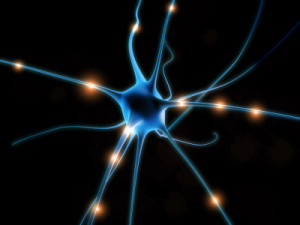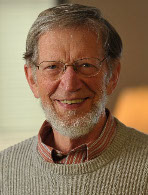 Here’s the fourth installment on my series on the mind-body problem.
Here’s the fourth installment on my series on the mind-body problem.
In this episode I look at the argument against physicalism from the afterlife. Here, some dualists argue that if physicalism were true, then the resurrection of the dead would be logically impossible. Their argument is:
- The doctrine of the resurrection of the dead entails that people will be raised back to life who are the same people who died long ago. In other words, they will have the same identity.
- Sameness of identity requires unbroken metaphysical continuity (that is, the continued, uninterrupted or “non-gappy” existence of whatever thing the functioning person is, whether a physical thing or an immaterial mind).
- In physicalism, it is logically impossible for there to be unbroken metaphysical continuity between a physical person who died a hundred years ago and a person who will be raised to life in the future.
- Therefore if physicalism is true, the doctrine of the resurrection of the dead is logically impossible. Stated differently, a physicalist cannot consistently believe in the resurrection of the dead.
How might a physicalist respond to this line of argument? Listen to find out. As promised in the episode, here are a few pieces of work by Trenton Merricks that relate to some of the material I cover:
“How to Live Forever Without Saving your Soul,” in Kevin Corcoran (ed.) Soul, Body, and Survival: Essays on the Metaphysics of Human Persons (Ithaca: Cornell University Press, 2001), 183-200
“There Are No Criteria of Identity Over Time,” Noûs 32:1 (1998), 106-124.
“The Resurrection of the Body and the Life Everlasting” in Michael J. Murray (ed.), Reason for the Hope Within (Grand Rapids: Eerdmans, 1999), 261-286.
Enjoy. 🙂
Glenn Peoples
Podcast: Play in new window | Download
UPDATE: Here the whole series, now that it is complete:

 Here’s part three of the series on philosophy of mind. We’ve moved from dualism in part one through to physicalism in this episode. I look at epiphenomenialism, reductionism, nonreductive physicalism and a constitution view.
Here’s part three of the series on philosophy of mind. We’ve moved from dualism in part one through to physicalism in this episode. I look at epiphenomenialism, reductionism, nonreductive physicalism and a constitution view.
 Here it is, part two of the series on philosophy of mind, In Search of the Soul. In this episode I introduce the viewpoint called emergentism, and I explore the argument for dualism from free will.
Here it is, part two of the series on philosophy of mind, In Search of the Soul. In this episode I introduce the viewpoint called emergentism, and I explore the argument for dualism from free will. In this episode of the Say Hello to my Little Friend podcast I start a four part series on philosophy of mind. I know I recently said that it would be a three part series, but hey, even four parts isn’t really enough to give the subject the full treatment it deserves. In part one I start with the dualist end of the spectrum. Today it’s Cartesian/Platonic dualism, which I take to be the most popular variety.
In this episode of the Say Hello to my Little Friend podcast I start a four part series on philosophy of mind. I know I recently said that it would be a three part series, but hey, even four parts isn’t really enough to give the subject the full treatment it deserves. In part one I start with the dualist end of the spectrum. Today it’s Cartesian/Platonic dualism, which I take to be the most popular variety.